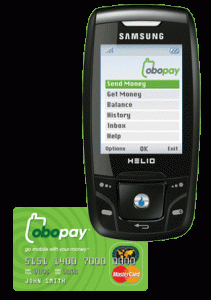Obopay intends to benefit from the emerging trend of digital banking and e-business in India. It was once the pioneer in SMS based technology that allowed quick payments, transfers, and withdrawal of money had raised over $144.76 million in funding
Obopay was founded by Carol Realini and John Tumminaro which eventually became the topmost third party e-banking and SMS service enabler in 2007.

But suddenly in 2012, the founders were shutting their venture after being on top of the food chain for close to seven years.
Obopay was unable to grow due to its dependence on Nokia Money, where most of its revenues were locked.
At the time India was a big market for Obopay because of Nokia Money. But, that did not stay for long.
When Nokia lost out its market share in the business to other rivals, the next inherent step was to offload non-core assets, and the Finland-based tech giant was the first to go.
But before closing down, it had just signed operations contracts in at least five East African countries and with a large bank, but it could not continue servicing clients due to the mass-scale cash crunch.
As the company sold itself, its technology was bought by B Padmanabhan and Rajiv Kuchhal, two ex-Infosyians, who saw that they could use it to rebuild the business to help financial institutions to ramp up their fintech capabilities.

They then registered the entire venture as an Indian company, which reincarnated Obopay again in the year 2013.
The business had potential because the technology was there to ramp up any form of fintech service for a financial institution wanting to enter the digital world
-says the present CEO of Obopay.
The new Obopay is essentially an alternative to a core banking solution and a payment gateway.
The major task for the new start-up was to regain trust of market partners and make new ones to expand the business even more that too before any other rival does.
He did so by piloting the technology, which was a slow process. In every pilot, the company had to show financial and banking clients that the technology had no glitches.
Today Airtel Money in Africa, and 45 banks use the Obopay platform across 21 African countries.
The Obopay platform today powers all payments forms for an institution, including QR Codes, NFC, Unstructured Supplementary Service Data, wallets, and apps.
And due to regualr payments and transactions, the company has now turned profitable.
So these two CEOs have (inspite of the market crunch and downfall of its biggest partner) have brought the company itself has come back from the dead, waking up to an era where the banking market is moving digital.
Obopay’s technology has finally come of age and further growth is only a matter of time.









